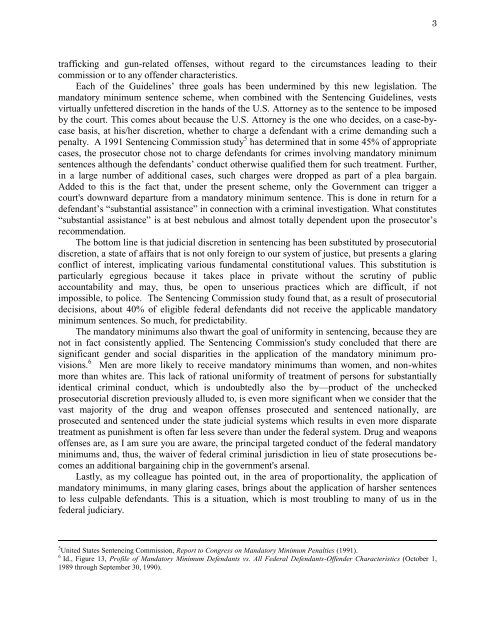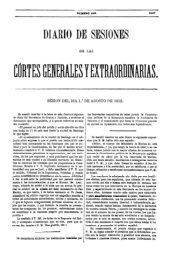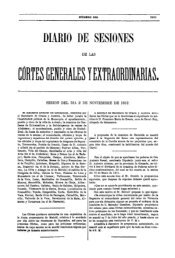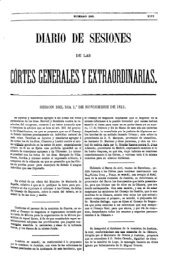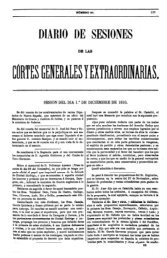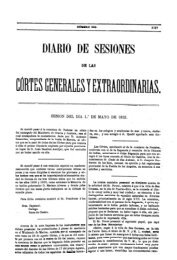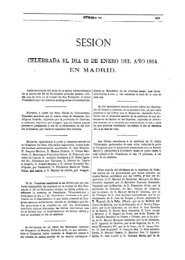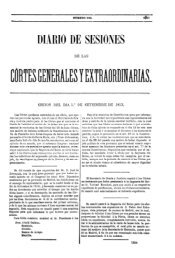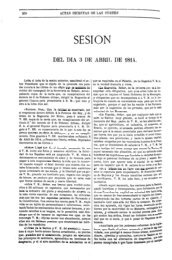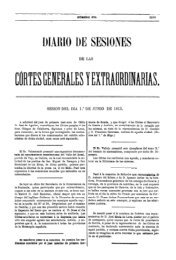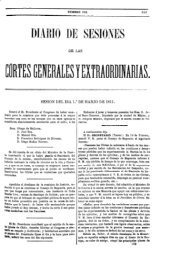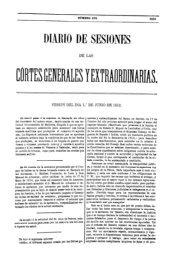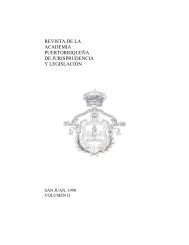3trafficking and gun-related offenses, without regard to the circumstances leading to theircommission or to any offen<strong>de</strong>r characteristics.Each of the Gui<strong>de</strong>lines’ three goals has been un<strong>de</strong>rmined by this new legislation. Themandatory minimum sentence scheme, when combined with the Sentencing Gui<strong>de</strong>lines, vestsvirtually unfettered discretion in the hands of the U.S. Attorney as to the sentence to be imposedby the court. This comes about because the U.S. Attorney is the one who <strong>de</strong>ci<strong>de</strong>s, on a case-bycasebasis, at his/her discretion, whether to charge a <strong>de</strong>fendant with a crime <strong>de</strong>manding such apenalty. A 1991 Sentencing Commission study 5 has <strong>de</strong>termined that in some 45% of appropriatecases, the prosecutor chose not to charge <strong>de</strong>fendants for crimes involving mandatory minimumsentences although the <strong>de</strong>fendants’ conduct otherwise qualified them for such treatment. Further,in a large number of additional cases, such charges were dropped as part of a plea bargain.Ad<strong>de</strong>d to this is the fact that, un<strong>de</strong>r the present scheme, only the Government can trigger acourt's downward <strong>de</strong>parture from a mandatory minimum sentence. This is done in return for a<strong>de</strong>fendant’s ―substantial assistance‖ in connection with a criminal investigation. What constitutes―substantial assistance‖ is at best nebulous and almost totally <strong>de</strong>pen<strong>de</strong>nt upon the prosecutor’srecommendation.The bottom line is that judicial discretion in sentencing has been substituted by prosecutorialdiscretion, a state of affairs that is not only foreign to our system of justice, but presents a glaringconflict of interest, implicating various fundamental constitutional values. This substitution isparticularly egregious because it takes place in private without the scrutiny of publicaccountability and may, thus, be open to unserious practices which are difficult, if notimpossible, to police. The Sentencing Commission study found that, as a result of prosecutorial<strong>de</strong>cisions, about 40% of eligible fe<strong>de</strong>ral <strong>de</strong>fendants did not receive the applicable mandatoryminimum sentences. So much, for predictability.The mandatory minimums also thwart the goal of uniformity in sentencing, because they arenot in fact consistently applied. The Sentencing Commission's study conclu<strong>de</strong>d that there aresignificant gen<strong>de</strong>r and social disparities in the application of the mandatory minimum provisions.6 Men are more likely to receive mandatory minimums than women, and non-whitesmore than whites are. This lack of rational uniformity of treatment of persons for substantiallyi<strong>de</strong>ntical criminal conduct, which is undoubtedly also the by—product of the uncheckedprosecutorial discretion previously allu<strong>de</strong>d to, is even more significant when we consi<strong>de</strong>r that thevast majority of the drug and weapon offenses prosecuted and sentenced nationally, areprosecuted and sentenced un<strong>de</strong>r the state judicial systems which results in even more disparatetreatment as punishment is often far less severe than un<strong>de</strong>r the fe<strong>de</strong>ral system. Drug and weaponsoffenses are, as I am sure you are aware, the principal targeted conduct of the fe<strong>de</strong>ral mandatoryminimums and, thus, the waiver of fe<strong>de</strong>ral criminal jurisdiction in lieu of state prosecutions becomesan additional bargaining chip in the government's arsenal.Lastly, as my colleague has pointed out, in the area of proportionality, the application ofmandatory minimums, in many glaring cases, brings about the application of harsher sentencesto less culpable <strong>de</strong>fendants. This is a situation, which is most troubling to many of us in thefe<strong>de</strong>ral judiciary.5 United States Sentencing Commission, Report to Congress on Mandatory Minimum Penalties (1991).6Id., Figure 13, Profile of Mandatory Minimum Defendants vs. All Fe<strong>de</strong>ral Defendants-Offen<strong>de</strong>r Characteristics (October 1,1989 through September 30, 1990).
In all fairness, from what I have just stated, it is apparent that much of the criticism to whichthe Gui<strong>de</strong>lines have been subjected is the fault not of the Gui<strong>de</strong>lines or the SentencingCommission, but of additional Congressional straight jacketing of judicial discretion through theprovisions of later legislation, the principal effect of which has been the conversion of gui<strong>de</strong>linesinto mandates to sentencing judges. They also have exacerbated systemic problems that areindigenous to the prosecutorial function.Nevertheless, even accepting these faults, in my view, my learned colleague somewhatoverstates his case against the Gui<strong>de</strong>lines. For example, although the Gui<strong>de</strong>lines are complicatedand unquestionably could be simplified from their present 258-box grid and 700 pages ofcommentary, the need for simplification alone is not reason enough for their elimination if theymeet an otherwise valid societal function. Certainly a judicial body that on a day-to-day basis<strong>de</strong>als with the labyrinthine Internal Revenue Co<strong>de</strong> or the social security statutes, to name just afew statutes that qualify for such a <strong>de</strong>scription within the United States Co<strong>de</strong>, should not beintimidated by the comparatively simpler Gui<strong>de</strong>lines. We must remember that the fe<strong>de</strong>ralcriminal statutes cover in excess of 800 crimes, as compared to the typical state system with 80or so separate crimes; and, thus, brevity in establishing a comprehensive sentencing scheme maynot be a virtue. I might also add that, in my experience, relatively few provisions of theGui<strong>de</strong>lines are involved in any single sentencing; thus, their total volume is of secondaryimportance. All this, of course, is not to say that there is no room for improvement; thereobviously is.I also find difficulty in supporting the proponent's critique of sentencing calculationsbecause they mystify the public. To me, the arithmetical approach to sentencing promoted by theGui<strong>de</strong>lines, which I will presently discuss and which requires specified explanation by thesentencing judge, should be more enlightening to the general public than the prior system inwhich no explanations were given as to the way or method of reaching the sentence imposed.Lastly, I am also somewhat at odds with Judge Cabranes’ auto-<strong>de</strong>-fe in recommending theappellate courts as the solution to the Sentencing Gui<strong>de</strong>lines dilemma, as well as on his relianceon the English system as an example to be followed. Since my colleagues on the Court ofAppeals are not within hearing distance, I can say that the cure that he proposes may be worsethan the disease. First, I am always leery of transplanting the procedures and practices ofdifferent legal systems. Experience has shown that such transplants rarely work. As we know,history and environment are the <strong>de</strong>terminative factors in promoting the creation and growth ofour legal institutions. The American fe<strong>de</strong>ral appellate structure today is only a distant cousin ofits English counterpart. The existence of appropriate conditions for the procedures proposed inEngland does not necessarily augur their success in the United States. A factor to consi<strong>de</strong>r is thatin England, where about 60% of criminal appeals involve sentencing issues, such appellate reviewworks well because their appellate system is centralized in the hands of comparatively fewjudges with very similar interests, training and background. Furthermore, that system hasoperated for many years, so that appellate judges know how to give direction without rigidcompulsion. Although it can be argued that sentencing is just another area of the law whichAmerican appellate courts can handle as they do the balance of the law, the fact is that, in our<strong>de</strong>centralized fe<strong>de</strong>ral system of appeals, it would take many years before a body of jurispru<strong>de</strong>ncewas established which contained acceptable components of predictability, uniformity andproportionality. I doubt that the public would tolerate the relatively long hiatus necessary forsuch a <strong>de</strong>velopment. Furthermore, such patience would have to be accompanied by concomitantlegislative self-restraint to allow appellate sentencing law to <strong>de</strong>velop and stabilize, a frugality of4
- Page 1 and 2: REVISTA DE LA ACADEMIA PUERTORRIQUE
- Page 3: 2enardecerá, en vez de corregir, l
- Page 9 and 10: través de la Ley, enardecerá, en
- Page 11 and 12: MEDICINE AND BIOLOGY: HOW FAR CAN T
- Page 13: unfair, in view of the total absenc
- Page 16 and 17: CONTESTACIÓN AL DISCURSO DEL HON.
- Page 18 and 19: la Oficina de Política sobre Cienc
- Page 20 and 21: códigos de ética existentes y los
- Page 22 and 23: REFORMING THE FEDERAL SENTENCING GU
- Page 24 and 25: narcotics and firearms, they tend t
- Page 26 and 27: Our faith in technology and plannin
- Page 28 and 29: single, all-powerful judge”. 17 W
- Page 30 and 31: CONTESTACIÓN AL DISCURSO DEL HON.
- Page 34 and 35: 5conduct which experience has shown
- Page 36 and 37: 2En este escrito trataré de establ
- Page 38 and 39: 4atender sus obligaciones económic
- Page 40 and 41: 6B. Juicio Público: Al igual que e
- Page 42 and 43: 8explicar la doctrina vigente. 47 A
- Page 44 and 45: 10tan serio disturbio emocional (
- Page 46 and 47: 12En Soto Ramos v. Superintendente
- Page 48 and 49: 14profesional y cómo ésta podría
- Page 50 and 51: 16Las implicaciones de esta exigenc
- Page 52 and 53: 18jurado. 116 Por otro lado, nuestr
- Page 54 and 55: 20forma rigurosa, de que la renunci
- Page 56 and 57: 22Tribunal Supremo ha seguido celos
- Page 58 and 59: 24protección es mayor que la que e
- Page 60 and 61: 264. Absuelto un acusado por determ
- Page 62 and 63: 28En Puerto Rico sólo cabe regular
- Page 64 and 65: 30B. Aplicación ex post facto de l
- Page 66 and 67: 32relación con el alcance 224 de l
- Page 68 and 69: 34se trata de una norma que comenz
- Page 70 and 71: 364) que la corroboración se relac
- Page 72 and 73: 38arresto. Bajo la Enmienda Cuarta,
- Page 74 and 75: 40razonable a la intimidad, no hay
- Page 76 and 77: 42Nuestra legislación permite la d
- Page 78 and 79: 44Derechos se dispone expresamente
- Page 80 and 81: 46Estados Unidos, adopta una posici
- Page 82 and 83:
2Aclarados esos puntos, coincido co
- Page 84 and 85:
La verdad es que los principios con
- Page 86 and 87:
EL DOLOR Y LA ANGUSTIA MENTALRamón
- Page 88 and 89:
3.7 8 9 10conocida y aceptada, hast
- Page 90 and 91:
5estímulo. Sin embargo, el punto e
- Page 92 and 93:
7de reconocimiento mundial, como ex
- Page 94 and 95:
dice que éste no distingue entre e
- Page 96 and 97:
11dos meses y medio más tarde cuan
- Page 98 and 99:
implicaciones negativas. Se debe de
- Page 100 and 101:
2naturaleza de los seres vivos, apl
- Page 102 and 103:
4de la clase dominante en la socied
- Page 104 and 105:
6su hora admitió ser identificado
- Page 106 and 107:
8cumpla la prestación que la norma
- Page 108 and 109:
10Encontramos la expresión todaví
- Page 110 and 111:
12La satisfacción de necesidades h
- Page 112 and 113:
14como aquí se propone, puede hace
- Page 114 and 115:
LOS DERECHOS HUMANOS FRENTE AL ESTA
- Page 116 and 117:
Como resultado, se ha llegado a un
- Page 118 and 119:
Yugoslavia, Georgia, Azerbaiján, A
- Page 120 and 121:
METASTESIS DE LA «RAZÓN» Y EL «
- Page 122 and 123:
fue quizás el producto de esa mism
- Page 124 and 125:
embargo, la corroboración de la ne
- Page 126 and 127:
VICuando Hegel, en su Phänomenolog
- Page 128 and 129:
del entendimiento (Verstehen) en el
- Page 130 and 131:
por el poder, por las estructuras y
- Page 132 and 133:
lo único que indica esta trasgresi
- Page 134 and 135:
Legislativa enmendó la Ley 53 orig
- Page 136 and 137:
Incluso, únicamente ofreció su t
- Page 138 and 139:
Al llegar a la gobernación en 1965
- Page 140 and 141:
Presidente del Tribunal Supremo y a
- Page 142 and 143:
Lamentablemente, vivimos en una soc
- Page 144 and 145:
1. El que en todas las acciones rel
- Page 146 and 147:
coordinación interagencial, con pa


